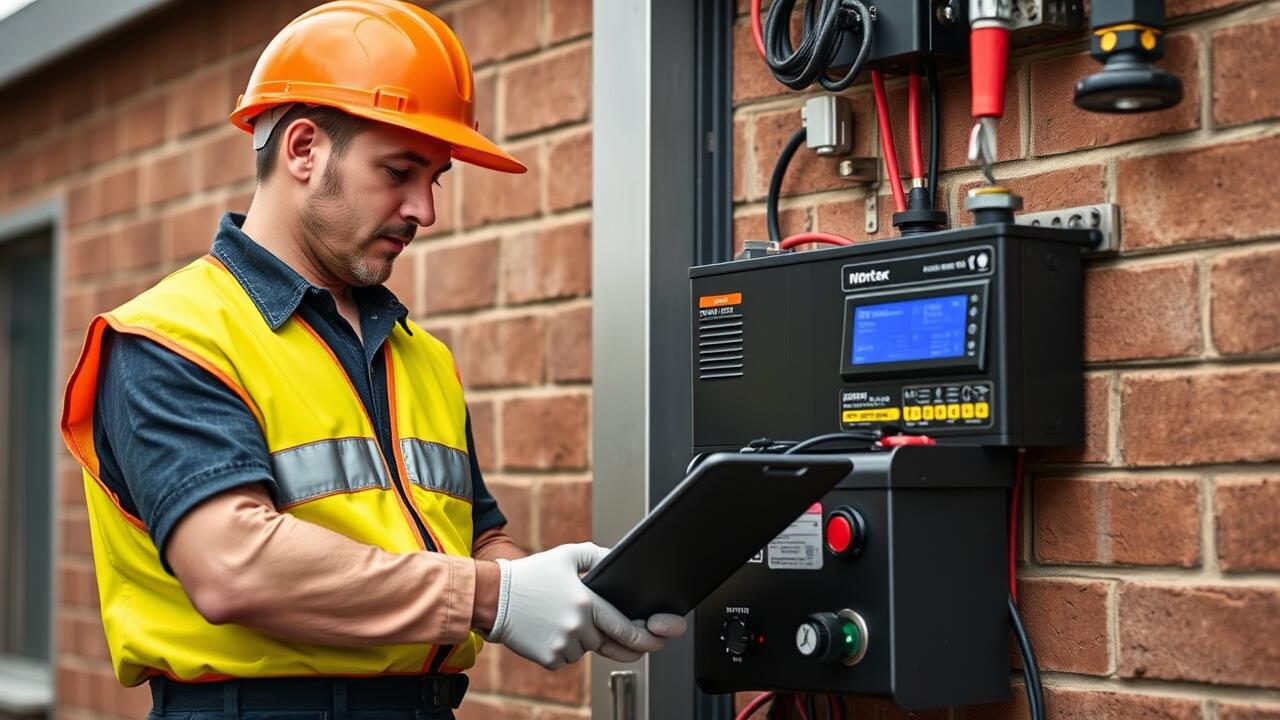
Choosing the Right Battery Size
Determining the appropriate battery size for your home is crucial to effectively manage energy consumption. Start by analysing your household's energy needs, including the average daily usage in kilowatt-hours (kWh). Consider peak usage times, which can vary based on the number of appliances in use and typical lifestyle patterns. Home Battery Storage Alfreton, Nottinghamshire, offers various options that can cater to different energy demands, allowing you to choose a solution that fits your specific requirements.
Another factor to consider is the duration of power outages you want to prepare for. A larger battery can store more energy, offering a greater supply during unexpected outages or periods of high demand. However, it's essential to balance capacity with budget, as larger batteries can be significantly more expensive. Consulting with local energy experts can provide insight into the optimal size tailored to your consumption habits and lifestyle.
Evaluating Your Home’s Energy Profile
To determine the right battery storage capacity for your home, start by evaluating your overall energy consumption. Review your electricity bills to identify your average monthly usage in kilowatt-hours (kWh). Consider seasonal variations, as energy needs may fluctuate with heating and cooling demands. Additionally, take note of which appliances consume the most power during peak hours. This information will help you identify essential loads and critical timeframes for energy storage.
Assessing your home’s energy profile also involves understanding peaks and troughs in your energy use throughout the day. The data can be further refined by monitoring your energy consumption patterns. Home Battery Storage Newington, Nottinghamshire, offers a range of solutions tailored to specific usage profiles. By thoroughly analysing your patterns, you can choose a battery system that not only meets your current demands but also accommodates future needs as energy consumption evolves.
Installation Considerations for Battery Systems
When considering the installation of a battery storage system at your home, several factors come into play. Assess the space available for installation, as well as the proximity to your existing electrical infrastructure. Locations such as garages, basements, or utility rooms often provide the ideal environment for battery systems, allowing for easy access while also protecting the equipment from harsh weather conditions. In Greasley, Nottinghamshire, local regulations and building codes may also influence your choice of equipment and placement, so it is essential to conduct thorough research beforehand.
Understanding your household's energy consumption patterns is crucial for a successful installation. A comprehensive evaluation helps to determine the most suitable battery capacity and type for your needs. Moreover, it's advisable to consider the potential for expansion in the future, especially if you plan to incorporate renewable energy sources. Consulting with local energy professionals can provide tailored solutions that maximise efficiency and performance for your home battery storage systems in Greasley, Nottinghamshire.
Professional vs DIY Installation
When considering the installation of a battery storage system for your home, the choice between professional service and a DIY approach is crucial. Opting for professional installation ensures that the system meets safety standards and is correctly integrated into your existing electrical setup. Experts will assess your home’s specific requirements, providing tailored solutions that guarantee optimal performance. For residents in areas such as Home Battery Storage Ravenshead, Nottingham, Nottinghamshire, enlisting a qualified professional can significantly enhance the system's longevity and efficiency.
On the other hand, some homeowners may lean towards a DIY installation to save on costs or as a personal challenge. While this approach can be rewarding, it requires a deep understanding of electrical systems and local regulations related to energy storage. Improper installation can lead to safety hazards, reduced efficiency, and potential issues with warranties. Therefore, those considering a DIY route must weigh the risks carefully, ensuring they possess the necessary skills and knowledge for such a task.
Maintenance of Battery Storage Solutions
Regular maintenance of battery storage solutions is crucial to ensure their longevity and efficiency. Homeowners should schedule periodic checks to monitor the battery's state of charge and overall health. This includes inspecting connections for corrosion and ensuring the system is free from debris. Battery management systems can provide real-time data on performance, allowing for timely interventions when issues arise.
In Upton, Nottinghamshire, residents must be mindful of the specific environmental factors that may affect battery performance. Temperature fluctuations can impact battery efficiency, so maintaining an ambient temperature in the installation area is vital. Owners should also adhere to the manufacturer’s guidelines for maintenance tasks and intervals to maximise the lifespan of their home battery storage systems.
Ensuring Longevity and Efficiency
To ensure longevity and efficiency of your battery storage system, regular monitoring and maintenance are essential. Keeping track of battery health can prevent unexpected failures and extend the overall lifespan. It is advisable to conduct periodic checks on the battery's performance metrics such as charge cycles, state of charge, and temperature levels. This proactive approach will also help in identifying any potential issues early on, facilitating timely interventions.
In areas like Home Battery Storage Manfield, UK, Nottinghamshire, environmental factors play a significant role in battery performance. Optimal installation locations can enhance efficiency, minimising losses due to extreme temperatures. Providing adequate ventilation and protection from moisture will safeguard the system from damage. Additionally, consulting with local professionals can offer insights into best practices tailored for your specific region, ensuring that your system operates at peak efficiency throughout its lifespan.
FAQS
How do I determine the right battery size for my home?
To determine the right battery size, evaluate your home’s energy profile, including your average daily energy consumption, peak usage times, and any future energy needs. This information will help you choose a battery capacity that can meet your requirements.
What factors should I consider when evaluating my home’s energy profile?
Key factors to consider include your total energy usage measured in kilowatt-hours (kWh), the number of devices you plan to power, and the duration for which you want the battery to supply energy during outages or peak times.
Should I hire a professional to install my battery storage system?
It is generally recommended to hire a professional for battery installation, as they have the expertise to ensure safety, compliance with local regulations, and optimal performance. However, if you have experience with electrical systems, a DIY installation may be possible.
How often do I need to maintain my battery storage system?
Maintenance frequency varies by battery type and manufacturer, but regular checks every six months to a year are advisable. This includes inspecting connections, ensuring proper ventilation, and checking for any signs of wear or damage.
What can I do to ensure the longevity and efficiency of my battery storage solution?
To ensure longevity and efficiency, keep the battery in a cool, dry place, avoid complete discharges, and follow the manufacturer’s guidelines for maintenance and usage. Regular monitoring of performance can also help identify issues early.


